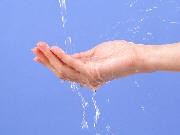Handwashing

Why is hand washing important?
Washing your hands thoroughly with soap and water is the single most important thing you can to do to prevent the spread of germs and protect yourself and others.
How can washing your hands keep you healthy?
Germs can be found everywhere, and bacteria and viruses that cause colds and infectious diseases such as hepatitis A, E. coli, shigella, and salmonella, are spread through contact with a contaminated surface or by persons who don’t wash their hands after using the bathroom. Washing your hands correctly will greatly reduce the chances of having those germs enter your body when you touch your nose or mouth, or spreading them to others through handling food or person to person contact.
When should you wash your hands?
- Before preparing or handling foods
- After touching raw meat, fish or poultry
- Before and after meals
- After going to the bathroom or changing diapers
- After blowing your nose, coughing or sneezing on your hands
- After touching a cut or sore
- After handling pets
- Whenever they're dirty
Is hand washing technique important?
Knowing how to wash your hands (This streaming video requires RealPlayer to view.) correctly is just as important as knowing when to wash them. Just rinsing them quickly is not enough. When you wash your hands:
- Always use warm, running water and soap.
- Rub hands together vigorously until a soapy lather appears and continue for 15-20 seconds. Be sure to wash all surfaces thoroughly, including the wrists, fingers, palms and top of hands, between fingers, and under fingernails.
- Rinse hands under warm running water. Leave the water running while drying hands.
- Dry hands with a clean, disposable (single use) towel.